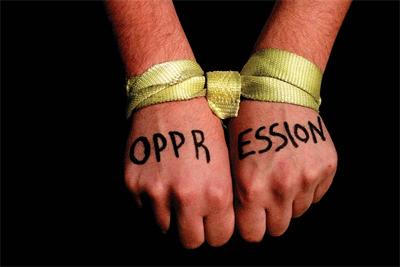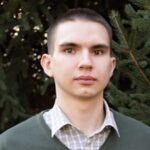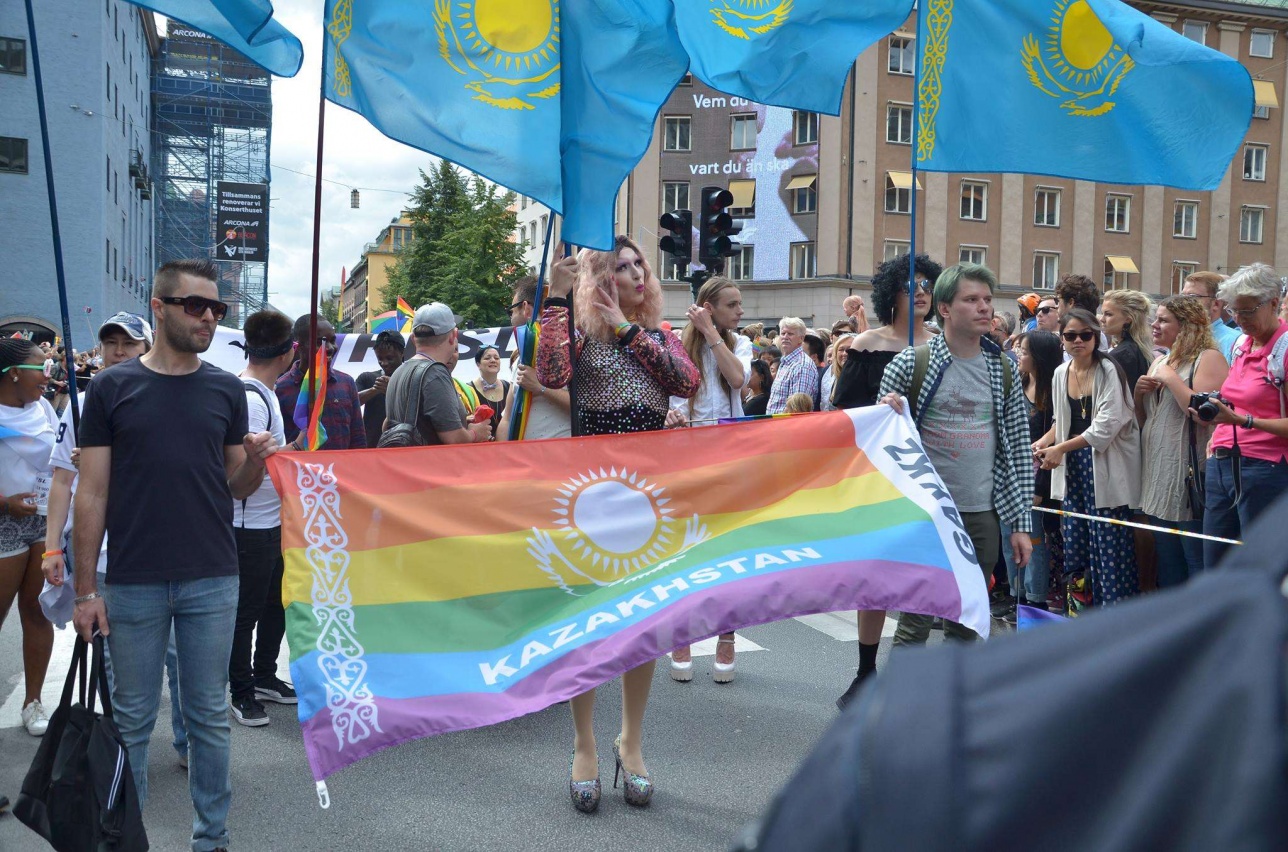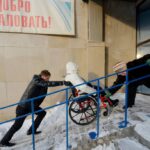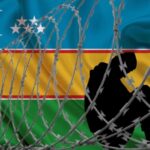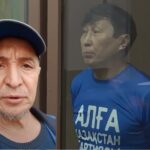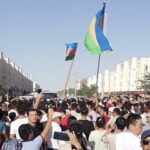The judge who in mid-January upheld one
of the two administrative fines totalling three months’ average wages imposed
on a Protestant-run drug and alcohol rehabilitation centre in the village of
Sychevka in Pavlodar Region of north-eastern Kazakhstan has defended her
action. But Judge Lyudmila Klimashina refused to explain why the authorities
and the Court are punishing the charity work of the Protestants who only seek
to help individuals with addiction problems. “We’ve given our decision,
and you can read what’s in there,” she told Forum 18 News Service from
Pavlodar Regional Court on 29 January. “I’m not going to discuss it with
you over the phone.”
In 2014 the Centre – a branch of a
Centre in Karaganda which gained legal status in 1999 – housed 14 residents,
including three children whose parents were also resident. All were there
voluntarily and could leave whenever they wished to.
“Because of the authorities’
actions against the Centre, eight of the 14 rehabilitants have left after the
Police raided us and began questioning them at various times,” Centre
director Yuri Morozov complained to Forum 18 on 28 January. “They were
scared and tired of the police pressure.” He explained that the remaining
six are staying at the Centre to protect it from theft, and answer questions
and inquiries of any visiting authorities.
“We have seen only one of the eight
who left us, and we understood that he was back into drinking again,” Morozov
lamented. “We do not know what happened to the rest.”
The authorities have been trying to
punish the Centre since 2010. However, after four years’ investigation the
police had to abandon a criminal case of inciting “religious hatred”
for lack of evidence. Two administrative cases were then launched, which
resulted in the December 2014 fines and the suspension of the Centre’s activity
for three months.
Rehabilitation
centres targeted
Kazakhstan’s harsh 2011 Religion Law
bans almost any religious activity away from state-registered religious
premises (see Forum 18’s Kazakhstan religious freedom survey
http://www.forum18.org/archive.php?article_id=1939).
Protestant-run drug and alcohol rehabilitation
centres have been repeated targets of official harassment. The moves appear to
be part of a behind-the-scenes official campaign against communities regarded
as “non-traditional”, especially those running social projects, as
revealed in a September 2014 letter from East Kazakhstan’s deputy regional
prosecutor, seen by Forum 18 (see F18News 14 October 2014
http://www.forum18.org/archive.php?article_id=2006).
One small Orthodox-run rehabilitation
centre in Almaty faces no obstruction to its work, the head of the centre Fr
Anatoly Izmerov told Forum 18 on 2 February. Forum 18 could find no Muslim-run
rehabilitation centres. Similarly, the Catholic Church runs no rehabilitation
centres, although the church tries to help drug- or alcohol-dependent individuals
who request such help, Archbishop Tomasz Peta of Astana told Forum 18 on 2
February.
Punished
for religious activity
In two separate hearings on 15 December
2014, according to the decisions seen by Forum 18, Judge Amangeldy Ishchanov of
Pavlodar District Court fined the Centre in Sychevka 100 Monthly Financial
Indicators (MFIs) under old Administrative Code Article 374, Part 1. In a
second hearing he fined director Morozov 50 MFIs under Article 374, Part 2 and
ordered the suspension of the Centre’s activity.
The fine of 100 MFIs or 185,200 Tenge
(Norwegian Kroner, Euros or US Dollars) represents about two months’ average
wage.
Article 374, Part 1 of the old
Administrative Code punished “violation of the law on social
organisations” by conducting activity not mentioned in an organisation’s
statutes. The maximum penalty for organisations was 200 MFIs. Article 374, Part
2 punished illegal activity by social organisations with a maximum fine for
leaders of 100 MFIs and suspension of an organisation’s activities for from
three to six months. The “offences” are now punished by Article 489,
Parts 1 and 2 of the new Administrative Code, which came into force on 1
January 2015.
In two separate hearings at Pavlodar
Regional Court on 19 January 2015, Judges Rakimberly Suleymenov and Lyudmila
Klimashina respectively upheld the penalties given to the Centre and Morozov,
as well as the three-month suspension of the Centre’s activity, according to
the decisions seen by Forum 18. However, Judge Klimashina amended the decision
to remove accusations that the Centre had violated health norms, accepting that
the record of an offence mentioned only violations of the Religion Law.
Forum 18 pointed out to Judge Klimashina
the similar attempted prosecution of a Pentecostal-run rehabilitation centre in
Aksu. There the District Court threw out the case, explaining that the presence
of religious books and believers in the Centre was not enough to classify it as
a religious association (see below).
Asked why the Pavlodar Courts gave a
contradictory decision over the Sychevka Centre, Judge Klimashina responded:
“First of all every case is different, and then it’s not ethical for you
to call us. You are meddling with the judiciary and state organs.” She
refused to talk further to Forum 18.
“Now I have to pay both fines since
the Regional Court decision was final in terms of execution of the
penalties,” Centre director Morozov lamented to Forum 18. “But we
will continue our appeals by way of cassation and through the Prosecutor
General’s Office, since we don’t agree with the decisions and penalties.”
Rehabilitation
Centre “harmed the psychological and physical health”
Police – including officers from the
Department for the Struggle with Extremism – raided the Sychevka Centre on 9
March 2014, seizing 18 religious books (including Bible texts) and other
materials. Investigators claimed to have discovered activity which was not
envisaged in its statute, including religious worship.
In the first case, Major Roman Gudin of
the Regional Police’s Investigation Department admitted in court that a
criminal investigation had been initiated against the Centre in 2010 that it
had been spreading religious materials inciting “religious hatred”,
but that during the March 2014 search nothing of that nature had been found.
The criminal case was abandoned on 24 November 2014.
Natalya Fesenko of the Analysis and
Interconfessional Relations Centre of Pavlodar Regional Religious Affairs
Department described the Centre in court as “bearing a destructive
character” and claimed it had “harmed the psychological and physical
health” of those who had chosen to live there. She alleged that the Centre
“zombified” its residents. She complained that it had really been a
religious organisation and had deceived the Justice Ministry when gaining
registration that it was secular.
Centre representative Igor Skurikhin
insisted in court that religious activity had not taken place there since the
new restrictions in the 2011 Religion Law had come into force and complained
that the accusations against the Centre had been prepared “with violations”.
Judge Ishchanov ruled in the first case
that religious activity at the Centre had been outside the terms of its statute
and therefore a violation. He ordered that the confiscated religious texts be
kept in the case file.
In the second case, attention focused on
whether it had been safe for the three children of resident parents also to be
living at the Centre. Fesenko claimed in court it had not.
Judge Ishchanov ruled against the
Centre, issuing the second fine (on Morozov personally) and banning its activity
for three months. However, the second ruling also orders that during the three
month suspension, the Centre must also “stop the use of religious
literature which has not undergone a religious studies expert analysis”.
It is not explained which of the confiscated religious books (including the New
Testament) had not undergone such “expert analysis” by state
officials, nor why this provision was included in the punishment for having
children resident in the centre with their parents.
In separate rulings – also issued on 15
December 2014 and seen by Forum 18 – Judge Ishchanov rebuked the leaderships of
Pavlodar Regional Police and of the Sanitary-Epidemiological Service (and the
District head of administration) for their officials’ failure to take action against
the Centre for so long.
Religious
or health care “expert”?
Rustem Dosmatov, Expert of Pavlodar
Regional Religious Affairs Department, confirmed to Forum 18 on 29 January that
Fesenko is an employee of the Religious Affairs Department. Asked why Fesenko,
who is not a health specialist, gave an evaluation of the impact of the
Centre’s work on residents’ health, Dosmatov responded: “The Police asked
us.” When Forum 18 repeated the question, he said, “She evaluated the
religious activity.”
Asked whether it is right for one State
organ to ask another State organ for a religious “expert analysis” of
religious activity or books, Dosmatov changed his previous statement, claiming
that Fesenko is an “independent” expert. Asked why he is
contradicting himself, Dosmatov responded, “Why don’t you call us back
tomorrow?” He refused to talk further.
Administrative
case fails again
Meanwhile, a police officer who brought
a second administrative case against Vladimir Styopin, the church overseer of a
Pentecostal-led drug and alcohol rehabilitation centre in the town of Aksu in
Pavlodar Region, again failed to secure a prosecution. Rizabek Bilyalov was
attempting to have Styopin punished under the old Administrative Code Article
374-1, Part 1 for leading an unregistered religious community at the centre.
The old Article 374-1, Part 1
(“Leading, participating in, or financing an unregistered, halted, or
banned religious community or social organisation”) carried a fine of 100
MFIs. The “offences” and punishments under Article 374-1 have been
transferred unchanged into the new Administrative Code’s Article 489, Parts 9,
10 and 11.
On 28 October 2014, Judge Gulnar
Mukhametkaliyeva of Aksu Specialised Administrative Court again threw out the
case, according to the decision seen by Forum 18. She ruled that any religious
activity at the Centre “does not involve the required numbers and the
necessary characteristics of a religious association which would demand its
registration”. Despite clearing Styopin of any wrongdoing, Judge
Mukhametkaliyeva ordered that a confiscated booklet, “His Name is
Love”, be kept in the file and not returned to him.
Colonel Murat Alikhanov, Chief of Aksu
District Police, defended the Police actions. Asked by Forum 18 on 28 January
why the Police continued action against the Rehabilitation Centre after the
first failed prosecution, he responded: “The Court earlier referred the
case back to the Police for further investigation, and so our job was to do
namely that and present it back to the Court.”
But, Colonel Alikhanov added,
“after the latest Court decision we will not take further action against
the Centre.”
Raid
against “sect”
A police “investigative operational
group” had raided the centre in July 2014. They were responding to an
alleged complaint by a local resident that a “sect” was operating
there. Officers inspected, filmed and photographed the centre. They also seized
a copy of a 48-page booklet “His Name is Love”.
A judicial/psychological/philological
“expert” analysis of the seized booklet from the Justice Ministry’s
Central Institute of Judicial Expert Analysis in Astana found that it contained
“no statements of an arousing nature, calling for an incitement to
religious and ethnic enmity, the superiority of one religion over another or
statements of the superiority of citizens because of their attitude to
religion”.
Police officer Bilyalov then launched
the first administrative case against Styopin, but Judge Mukhametkaliyeva sent
it back on 7 October 2014, as the case had not been properly documented.
Bilyalov refused to discuss his attempts to prosecute Styopin with Forum 18 in
October 2014 (see F18News 14 October 2014 http://www.forum18.org/archive.php?article_id=2006).
SOURCE:
Forum 18
http://forum18.org/archive.php?article_id=2034


